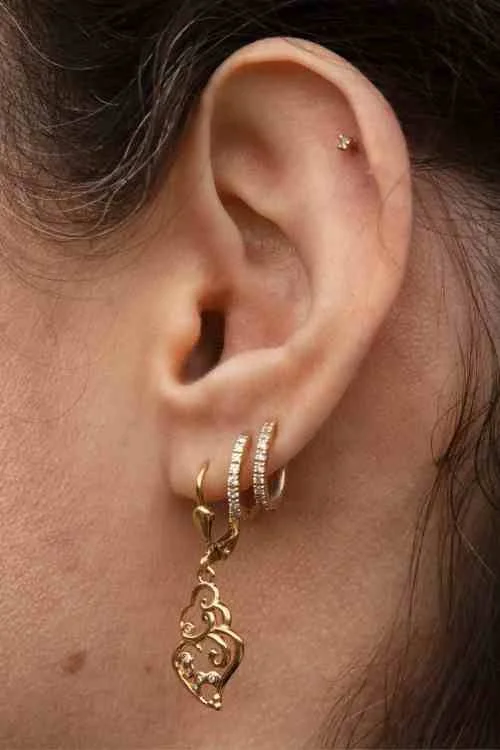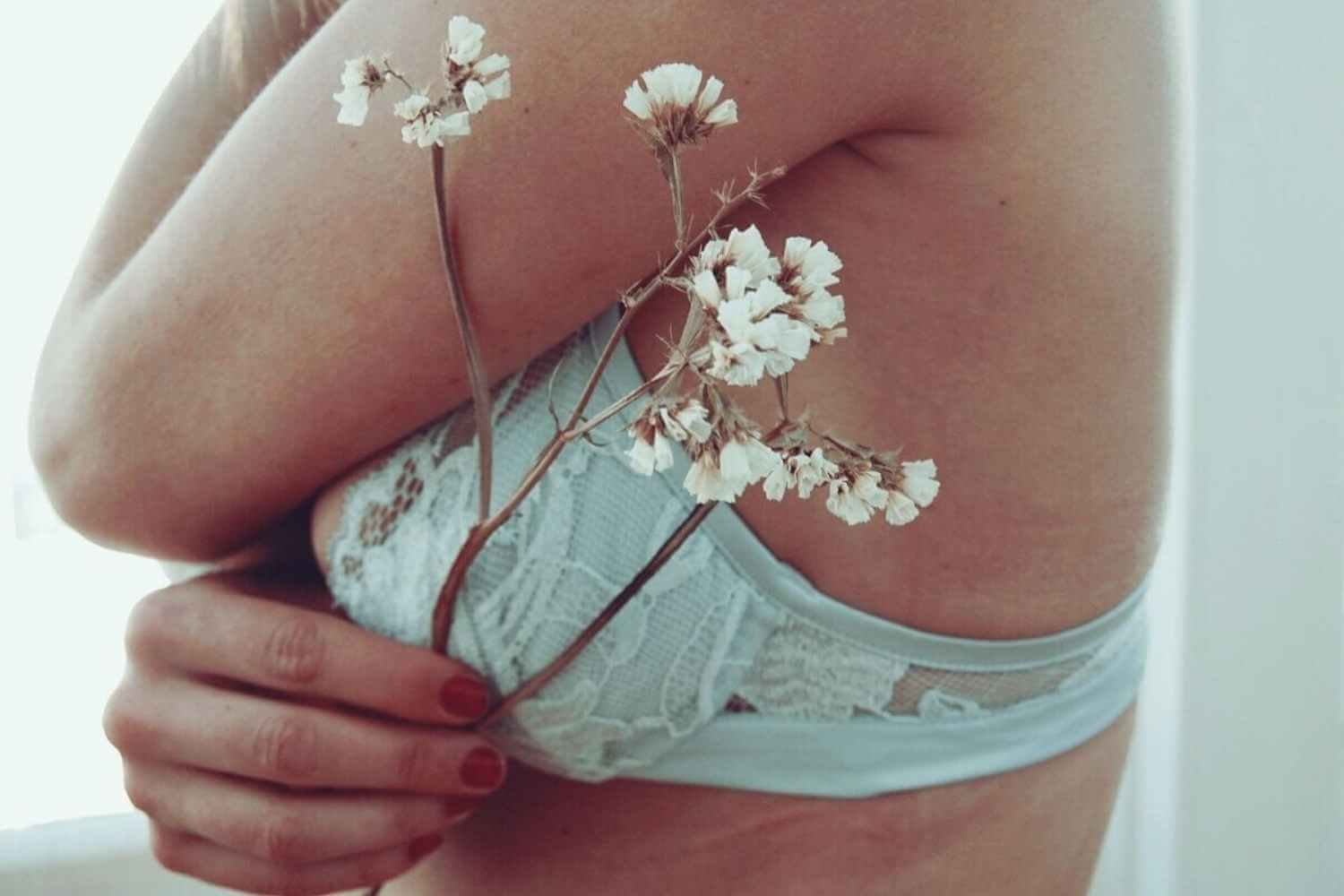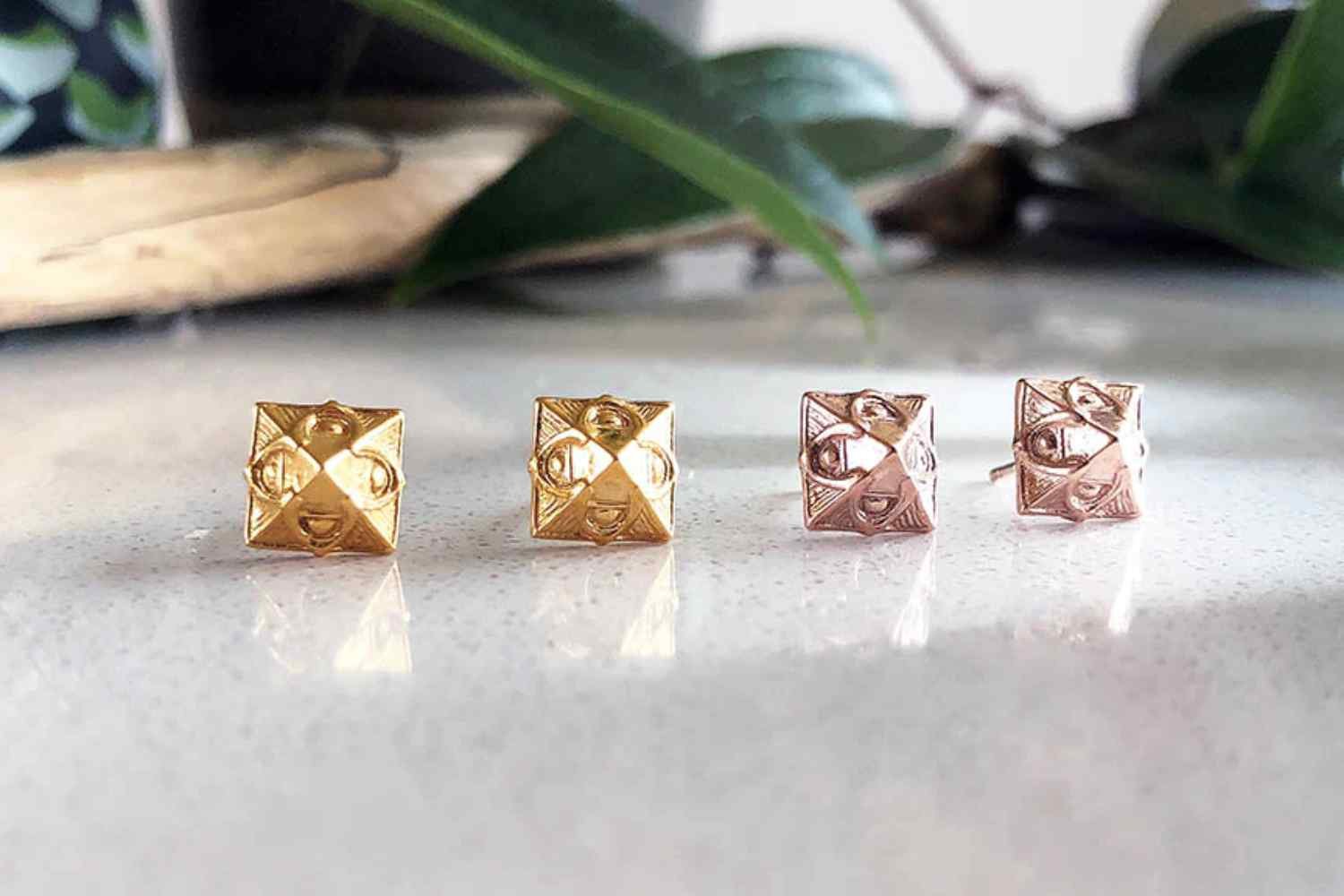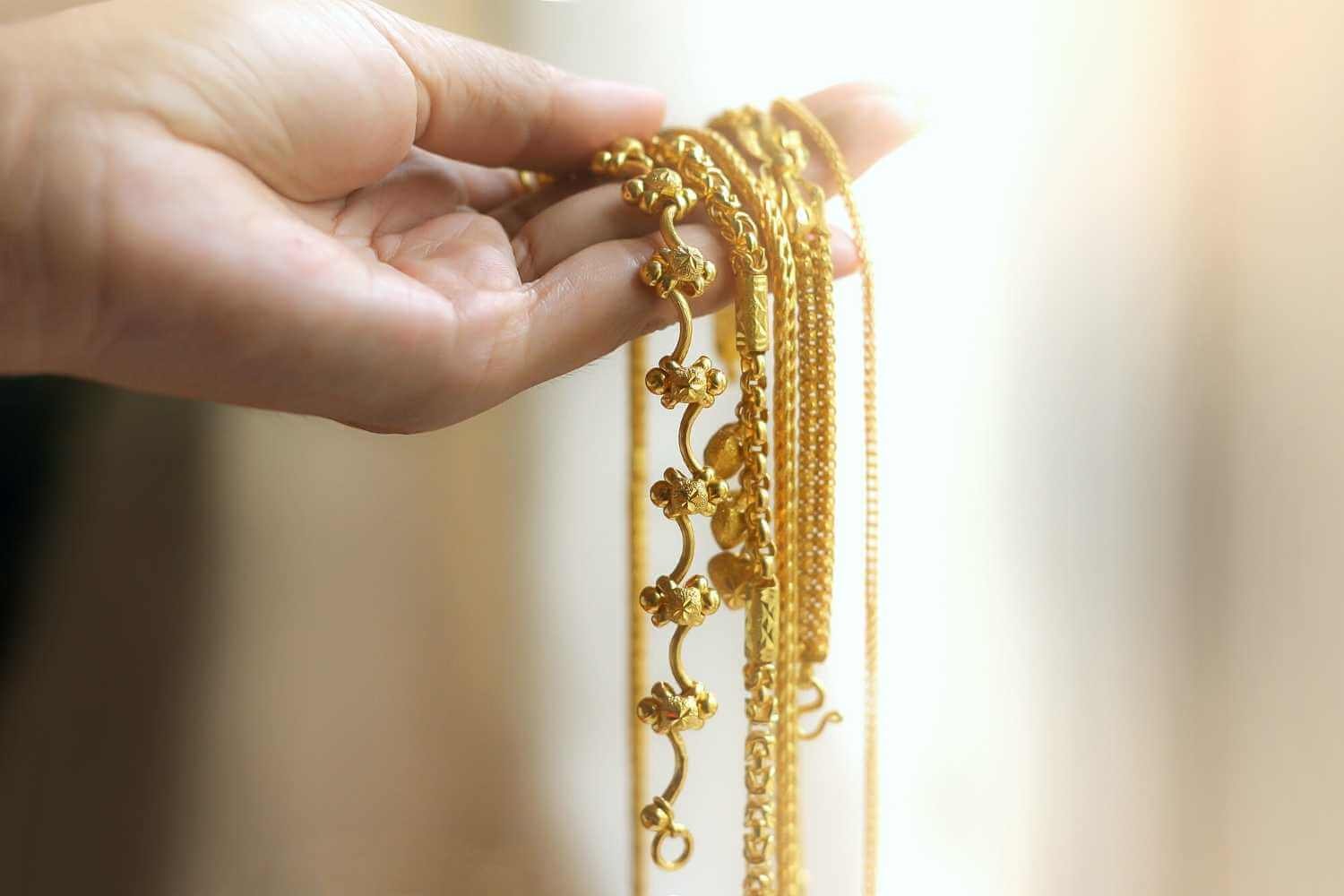13 Eco Friendly And Ethical Jewellery Brands In The UK
This post contains affiliate links to sustainable brands.
Ethical jewellery is the perfect gift for someone you love.
The hard part?
Finding something beautiful and sustainable in an industry lacking in transparency.
Diamond and gold mining are entwined with the worst kinds of human rights issues and produce a huge amount of pollution.
If you want your present to be truly meaningful, it is so important to check your jewellery was mined and made responsibly.
In this post, I’m going to help you understand what makes jewellery ethical and explain some of the social and environmental issues that happen behind the scenes.
If you just want to know the 13 ethical jewellery brands in the UK, keep scrolling to the end.
Coming up
What is ethical jewellery
10 issues in the mining industry
What to look for in responsibly-made jewellery
Where to find vintage or secondhand jewellery
13 eco-friendly and ethical jewellery brands in the UK
1. What is ethical jewellery?
Ethical jewellery is designed, produced, and distributed without causing harm to people, animals, or the planet.
Fair to people
Many jewellery brands manufacture jewellery overseas where the minimum wage is unethically low and there are no laws to protect the safety of workers. Poor working conditions combined with poverty wages often result in child labour because the worker’s wages don’t cover their cost of living.
Instead of profiting from the exploitation of workers (that are usually BIPOC), an ethical jewellery brand will empower the people in its supply chain. They should also be transparent about where their factories are, regularly audit them to check working conditions are safe, and pay them fair wages.
Fair to the Planet
Mining the raw materials used in jewellery, like diamonds and gold, is damaging to ecosystems and the environment in a variety of ways. Research has shown that it takes 2534 litres of water and 8.9 litres of fuel to mine 1 carat of diamonds.
To mine gold, large amounts of toxic chemicals, like mercury and cyanide, are required which pollute the air and water, while causing health issues for the workers and locals.
2. The issues with mining
When shopping for ethical jewellery, you need to look at each part of the supply chain. Even the most beautiful pieces of jewellery started off in the ground as natural elements.
When deciding if a piece is sustainable, you must go back to the very beginning and ask where the metals and stones were sourced.
And more importantly, who made your jewellery?
Mines are located in countries where workers are easily exploited and jewellery is created where wages are inexcusably low. Many brands turn a blind eye to the miner’s safety so it’s left to the consumers to demand transparency.
Here are 10 ethical issues in the mining industries:
There are 450 illegal gold mining sites in the Amazon rainforest which are a cause of deforestation and violence towards indigenous people.
The sales of conflict diamonds have directly funded conflict in countries such as Sierra Leone and the Democratic Republic of Congo. Recent statistics suggest diamond mining is responsible for up to 4 million deaths.
It is estimated that 30-50% of the workforce in small-scale gold mining consists of child labour.
In 2018, 147 million carats of diamond were mined which required 372 billion litres of water.
Small-scale mining is the largest source of mercury pollution on earth. Mercury contaminates water and air and persists in the environment forever. Mercury poisoning causes kidney failure, neurological damage, birth defects and cognitive dysfunction. It can even lead to death.
Mercury pollution is also a problem for wildlife. It is a bio-accumulative toxin that sea creatures, like fish and birds, absorb which then contaminates local food chains.
90% of gold mining is done by small or artisanal miners who work by hand in unregulated mines. A third of the workforce is women who often bring their children to work with them.
80% of the world’s rubies are sourced from Myanmar and the funds are controlled by the military who are committing genocide against Rohingya. Buying cheap gemstones means you are likely funding genocide.
Mining a diamond uses more than 126 gallons of water per carat.
Mined diamonds also result in a constant discharge of wastewater and pollute surface water, according to a recent research study from Frost & Sullivan.
Sources
RAISG, Global Witness “The Truth About Diamonds” (2006), K4D “Overview of child labour in the artisanal and small-scale mining sector in Asia and Africa” (2017),
3. What to look for in sustainable jewellery?
Secondhand or vintage - buying secondhand means no resources were taken to produce your item which makes vintage jewellery the most sustainable option.
Fairtrade or Fairmined Gold - Fairtrade gold ensure the miners are getting paid fairly for their work. The scheme also helps them gradually reduce chemicals and handle them safely without harming the environment. Buying Fairtrade or Fairmined gold improves the livelihoods of poor communities around the world and increases the demand for clean gold.
Fairmined Ecological Gold - Certified Ecological Gold is the most sustainable certification in the world. It has all the benefits of Fairtrade, but uses no toxic chemicals, like Mercury, at all and is beneficial to the surrounding environment.
Lab-grown diamonds - lab-grown gemstones are much more eco-friendly than mined and don’t come with human rights exploitations. Does the manufacturer share details about the production and the type of energy used? Are they making an effort to reduce their carbon footprint?
Recycled diamonds - Also called reclaimed, choosing recycled diamonds and gemstones is the most ethical choice. It ensures no child labour was involved in the mining of your precious stones.
Recycled metals - It is more eco-friendly to choose recycled gold and silver than to take natural resources from the earth, however, there is a large demand for recycled gold.
4. Where to buy secondhand jewellery
Preloved jewellery makes a wonderful gift. Not only is it ethical and cheaper, but vintage jewellery is also one of kind.
Buying second-hand gifts are the most eco-friendly choice because it doesn’t rely on natural resources or cause human exploitation.
There is an abundance of jewellery out there and it can be resized or upcycled if you need it to be.
Where to buy preloved or vintage jewellery online in the UK:
13 Eco-Friendly and ethical jewellery brands
If you would like to buy an ethical piece of jewellery, this list is for you.
While second-hand is the most sustainable buy, it can be hard to find a specific design you want and there’s often no way to try it on first which is a nightmare for specific items, like engagement rings.
Choosing preloved also doesn’t support the artisans and miners whose economies depend on jewellery making.
There are a lot of different aspects to sustainability, so the best thing you can do is acknowledge your core values and choose a brand that reflects them.
The following UK brands are making beautiful jewellery in a more responsible and ethical way.
1. Shakti Ellenwood
Materials: Fairtrade certified gold from Peru, CanadaMark diamonds (fully traceable to Canada), responsibly sourced smaller diamonds and gemstones, and some recycled gold.
Price range: £££ - £££
About:
Shakti Ellenwood is an ethical jewellery designer and goldsmith; her 22-year-old company is a certified B Corporation and donates over 2% of profits to animal charities.
Shakti specialises in beautiful wedding jewellery and animal amulets. Her unique creations are inspired by various cultures but mainly the Ancient Egyptians.
A piece of Shakti’s soul goes into each handmade creation; her brand radiates authenticity and integrity.
2. Little Imp
Materials: Recycled silver
Price range: ££ - £££
About:
Little Imp jewellery is an independent jewellery maker that designs stunning minimalist pieces.
Each piece is handmade from recycled silver in a studio in Hertfordshire and shipped to you in recycled packaging.
Little Imp uses eco-friendly, vegan alternatives to the polishing chemicals commonly used making it suitable for vegans and vegetarians.
3. Matilde jewellery
Materials: Recycled metals and lab-grown diamonds
Price range: ££ - ££££
About:
Matilde Mourinho is a jewellery designer who recently launched her own sustainable jewellery brand. Made by artisans in Turkey, Matilde uses lab-grown diamonds to reduce the environmental impact and human exploitation that happens with mining.
4. Kaligarh
Materials:
Price range: ££ - £££
About:
Kaligarh is a sustainable jewellery brand that works closely with Himalayan artisans to help to revive fading artistic traditions. After the 2015 earthquake, many homes in this region were destroyed. A reliable income, flexible schedules around family life and interest-free loans from Kaligarh have allowed people to rebuild their homes and lives.
Kaligarh works closely with independent artisans and pays them premium rates.
5. Dreamgazer Designs
Materials: Recycled silver and UK sea glass
Price range: ££
About:
Dreamgazer Designs is a small woman-owned business creating jewellery from eco silver and sea glass found on UK beaches.
Handmade in a studio in Herefordshire, each ring and necklace is unique making it a special gift.
6. 3RD/DIADEM
Materials: recycled paper composite
Price: ££
About:
3RD/DIADEM is a small business founded by Japanese designer and maker, Gow Tanaka. He makes ethical unisex jewellery in an East London workshop.
Gow takes inspiration from his cultural heritage and combines it with European lifestyle to create innovative eco-friendly designs.
7. Votch
Materials: Vegan leather. Pinatex leather is a byproduct of the pineapple industry, and AppleSkin is a byproduct of the apple juice industry. Environleather is cotton woven with polyester and coated in PU. The Mesh Collection is woven stainless steel.
Price: ££-£££
About:
After experiencing topical steroid withdrawal and learning about the exploitation of animals in the fashion industry, Laura, the founder of Votch, vowed never to wear the skin of an animal. Leather is a cruel industry, with issues ranging from animal torture to toxic chemicals and child labour. Unfortunately, it is used widely in high street and designer fashion.
Votch’s vegan leather watches are made in China where Laura has a close relationship with their supplier. 10% of their profits go to animal rescue charities.
Discount: SUSTAINABLYLAZY15 (15% off)
8. Hummingbird Hawkmoth
Materials: Recycled sterling silver
Price range: ££
About:
Fans of minimalist, boho jewellery will love Hummingbird Hawkmoth. Nicole creates all her jewellery by hand in her Brighton Studio so each piece is unique.
Hummingbird Hawkmoth is an eco-friendly brand; all her materials are recycled, including all cardboard packaging. They are 100% plastic-free.
9. Ethica Diamonds
Materials: Lab-grown diamonds, Fairtrade or recycled metals
Price: £££ - ££££
About:
Ethica Diamonds are pioneers in eco-friendly lab-grown diamonds. They call their precious stones pure because, unlike many other UK jewellers, they are made with 100% renewable energy.
Growing gems in a lab might seem odd, but they are chemically identical to real diamonds and are flawless. The benefit of having a synthetic diamond is that you know for sure that no human exploitation or toxic pollution was involved in its mining.
Ethica diamonds are chemically identical to mined diamonds and are certified carbon neutral. They sell earrings, pendants, bracelets and bridal jewellery.
10. People Tree
Materials: Fairtrade silver-plated brass (nickel-free), brass, silver and crystals, like Amethyst and onyx.
Price range: £ - ££
About:
Popular ethical fashion brand, People Tree, sell a selection of handmade jewellery. The majority of their products are made by Bombolulu, a Fairtrade business in Kenya that provides opportunities for people who have physical disabilities. Bombululu provides employment for 100 people, including skilled blind artisans who make the links for each chain by hand.
People Tree’s second supplier is TARA, another Fairtrade group who campaign against poverty and child labour.
11. Lebrusan Studios
Materials: Fairtrade and Fairmined gold, ethically sourced diamonds and gemstones
Price range: £££-££££
About:
Arabel Lebrusan is an award-winning designer of intricate jewellery. Her designs are stylish and elegant, mixing traditional craftsmanship with chic design.
Lebrusan was one of the first UK retailers to be licensed in Fairtrade gold and silver so her metals can be traced back to the exact mines they came from.
Lebrusan believes “jewellery has the power to change lives” and has committed to using ethically sourced diamonds and sapphires.
12. Good Daze
Materials: Recycled 18k gold vermeil, recycled silver
Price range: ££ - £££
About:
“Better days are coming:” Mood Good is an independent jewellery brand that uses recycled metals to create necklaces and rings to cheer people up.
After working for a high street brand for four years, Rosie started her company so she could focus on slow sustainable production techniques that allowed her to be involved at all steps of the process.
All Mood Good pieces are made in small workshops around East London so there is complete transparency in their supply chain.
Bio-Trimmings
Materials: Resin made using food waste, recycled sterling silver
Price range: ££ - £££
About:
Fashion designer Hoyan Ip has created a unique solution to some of the 7 million tonnes of food thrown out in the UK - turn it into ethical jewellery.
Her London-based company collects fruit and vegetable waste from restaurants and ensures it is clean before transforming it into eco-resin jewellery. Prices start at £20 so it’s suitable for people on a budget.
As you can see eco-friendly jewellery can fit all budgets and all styles. Which ethical brand did you like the best?
























